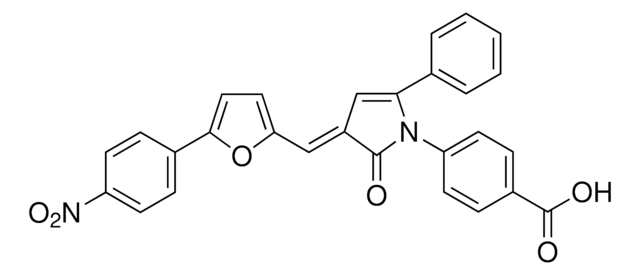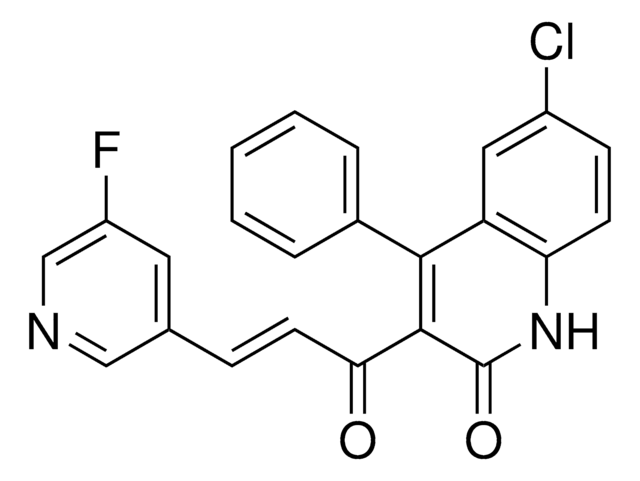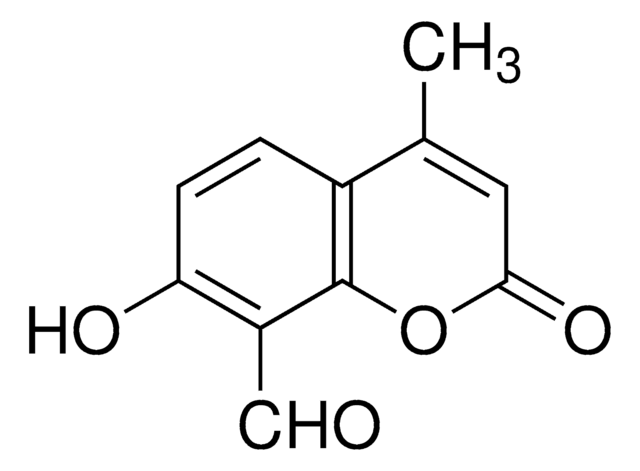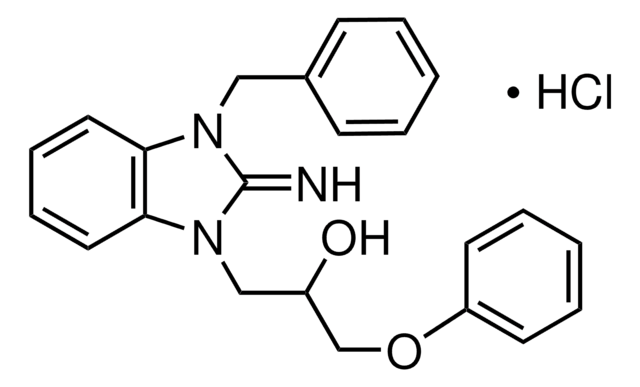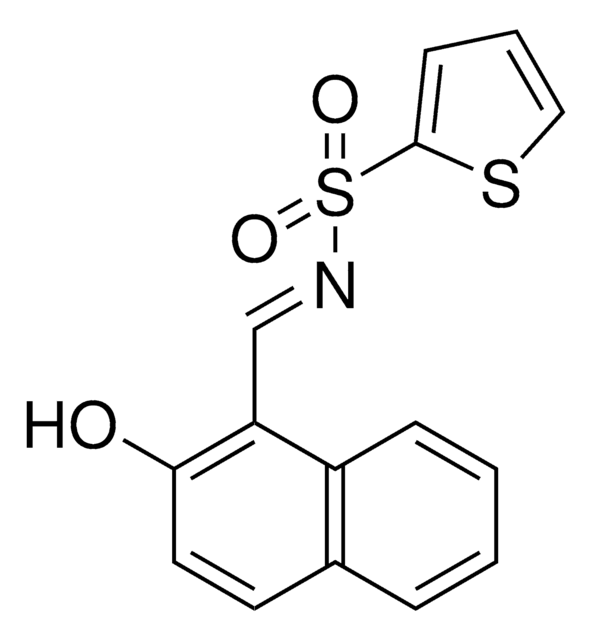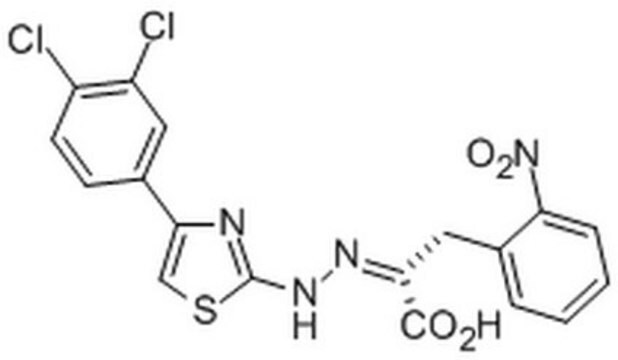SML0951
Salubrinal
≥98% (HPLC), powder, eIF2α dephosphorylation inhibitor
Synonym(s):
(2E)-3-Phenyl-N-[2,2,2-trichloro-1-[[(8-quinolinylamino)thioxomethyl]amino]ethyl] 2-propenamide
About This Item
Recommended Products
product name
Salubrinal, ≥98% (HPLC)
Quality Level
Assay
≥98% (HPLC)
form
powder
color
, White to brown to grey
solubility
DMSO: 20 mg/mL, clear
storage temp.
−20°C
InChI
1S/C21H17Cl3N4OS/c22-21(23,24)19(27-17(29)12-11-14-6-2-1-3-7-14)28-20(30)26-16-10-4-8-15-9-5-13-25-18(15)16/h1-13,19H,(H,27,29)(H2,26,28,30)/b12-11+
InChI key
LCOIAYJMPKXARU-VAWYXSNFSA-N
Application
Biochem/physiol Actions
Features and Benefits
Signal Word
Warning
Hazard Statements
Precautionary Statements
Hazard Classifications
Eye Irrit. 2 - Skin Irrit. 2 - STOT SE 3
Target Organs
Respiratory system
Storage Class Code
11 - Combustible Solids
WGK
WGK 3
Flash Point(F)
Not applicable
Flash Point(C)
Not applicable
Certificates of Analysis (COA)
Search for Certificates of Analysis (COA) by entering the products Lot/Batch Number. Lot and Batch Numbers can be found on a product’s label following the words ‘Lot’ or ‘Batch’.
Already Own This Product?
Find documentation for the products that you have recently purchased in the Document Library.
Customers Also Viewed
Articles
We offer a variety of small molecule research tools, such as transcription factor modulators, inhibitors of chromatin modifying enzymes, and agonists/antagonists for target identification and validation in gene regulation research; a selection of these research tools is shown below.
Our team of scientists has experience in all areas of research including Life Science, Material Science, Chemical Synthesis, Chromatography, Analytical and many others.
Contact Technical Service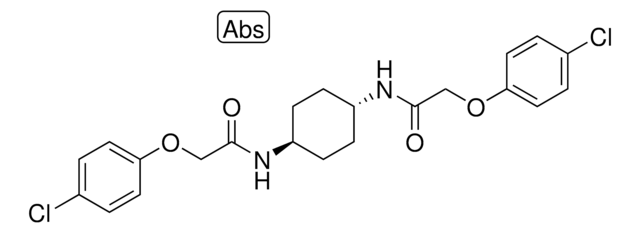


![PERK Inhibitor I, GSK2606414 GSK2606414 is a cell-permeable, highly potent inhibitor of EIF2AK3/PERK (IC₅₀ = 0.4 nM; [ATP] = 5 µM). Targets PERK in its inactive DFG conformation at the ATP-binding region.](/deepweb/assets/sigmaaldrich/product/structures/180/559/efa716dc-d5fe-4339-a6f0-0103084fc04a/640/efa716dc-d5fe-4339-a6f0-0103084fc04a.png)



